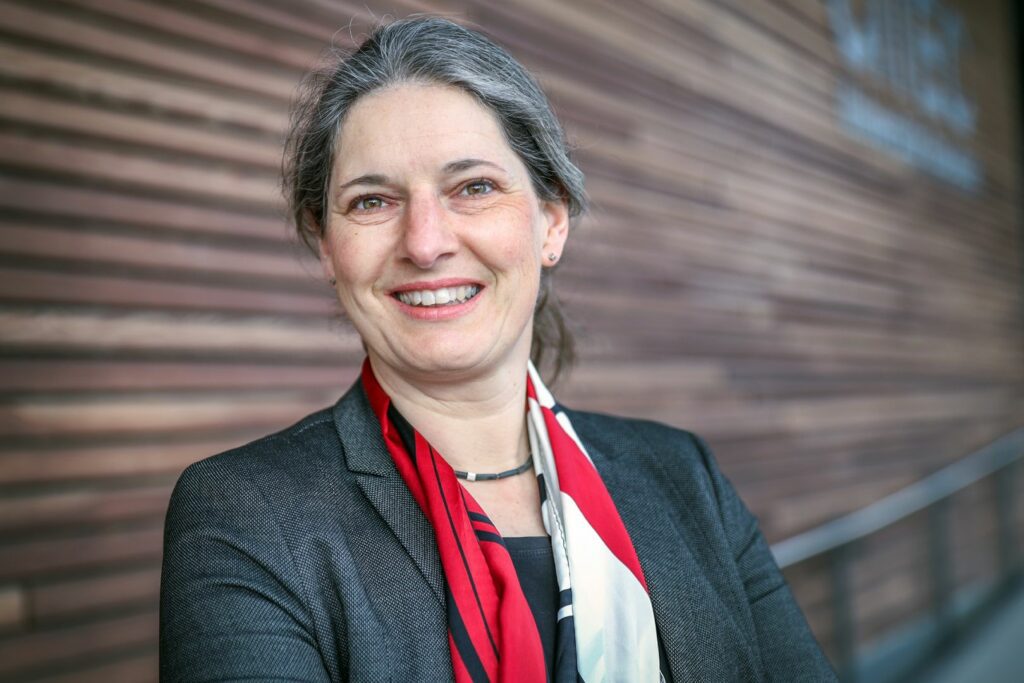Prof. Dr. Barbara Hammer
Professor of Machine Learning at Bielefeld University
AI for SMEs made in NRW
Barbara Hammer, Professor of Machine Learning at Bielefeld University, about functionality, potentials and possible applications of this technology

© Bielefeld University
What is machine learning, anyway?
Machine learning provides methods that automatically learn complex regularities, insights or capabilities from observations. Example applications range from machine translation to the detection of cause-effect relationships in medicine, to learning complex control problems in machine manufacturing or robotics. In particular, the technology allows automation in areas that are not amenable to classical modeling, but where real data are available. However, this often results in black-box processes whose exact function is not accessible to the observer, with corresponding risks in terms of safety and operability. Therefore, I see the development of machine learning methods that can be interpreted by humans and cooperate with humans as one of the major challenges.
In which areas do you see the greatest potential for this technology?
Machine learning is in the process of revolutionizing procedures and forms of work in a wide variety of areas: in science, for example, laboratory experiments (such as microscopy) can be evaluated automatically and thus established as a high-throughput technology; some individuals take functionalities such as automated translation of texts or intelligent support in searching for information on the web for granted; in business, for example, machine learning is used for intelligent quality control or process optimization. The enormous developments in machine learning for image and language processing in recent years have a fundamental impact on almost all areas of business, science and society due to the universality of these modalities. I see great potential in particular in a wide variety of areas that are central to society, such as medical diagnostics or intelligent e-learning for education and training.
To what extent industrial companies from North Rhine-Westphalia may benefit from this?
The basis for the use of machine learning methods is a good digitization concept and corresponding infrastructure. This has already been well achieved in parts of NRW, also supported by dedicated projects such as the leading-edge cluster on intelligent technical systems in the OWL region with the university locations of Bielefeld and Paderborn. In my view, the industry in NRW not only benefits from global developments in machine learning, which are often provided by large internet companies but also develops its specific concepts that are particularly suitable for the strong medium-sized industry in NRW and that also take into account requirements for data sovereignty or compatibility with the needs of citizens: such as efficient methods for specific applications in companies that get by with little data and little computing effort; or methods that take into account principles of human cognition and thus provide plausible approaches for human-machine cooperation.
Barbara Hammer studied mathematics and computer science at the University of Osnabrück, received her Ph.D. in 1999 on the topic of »Learning with Recurrent Neural Networks« and her habilitation in 2004 on the topic of »Mathematical Aspects of Neural Networks«, before accepting a professorship for theoretical computer science at the Clausthal University of Technology in 2004. As of 2010, she holds the Chair of Machine Learning at Bielefeld University. She has been a visiting researcher at Rutgers University, CAIR in Bangalore, University of Pisa, University of Birmingham, and Université Paris 1 Panthéon-Sorbonne. Her research interests are in neural networks, learning interpretable models, neuro-symbolic integration, lifelong learning, and applications. Among others, she chaired the Technical Committees on Data Mining and Neural Networks of IEEE CIS.